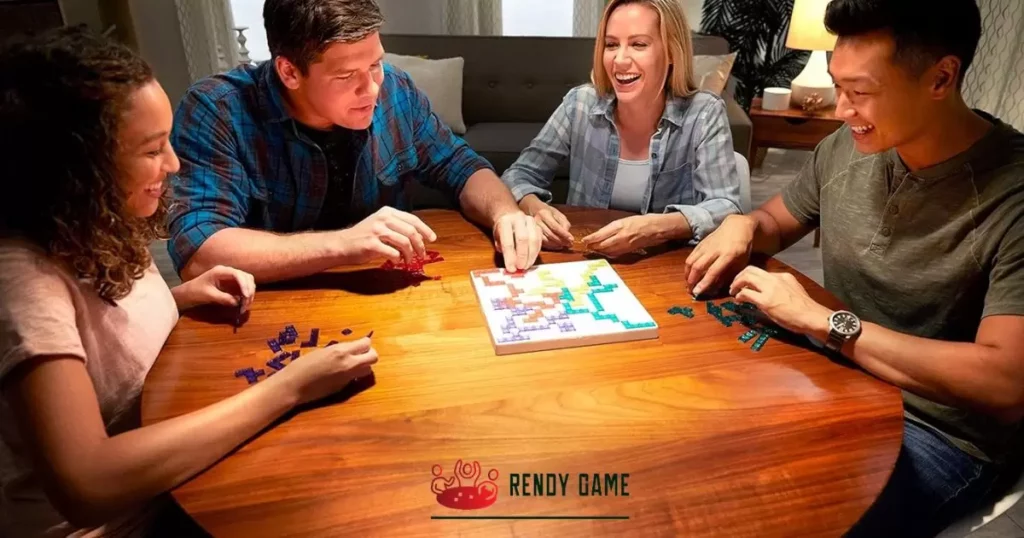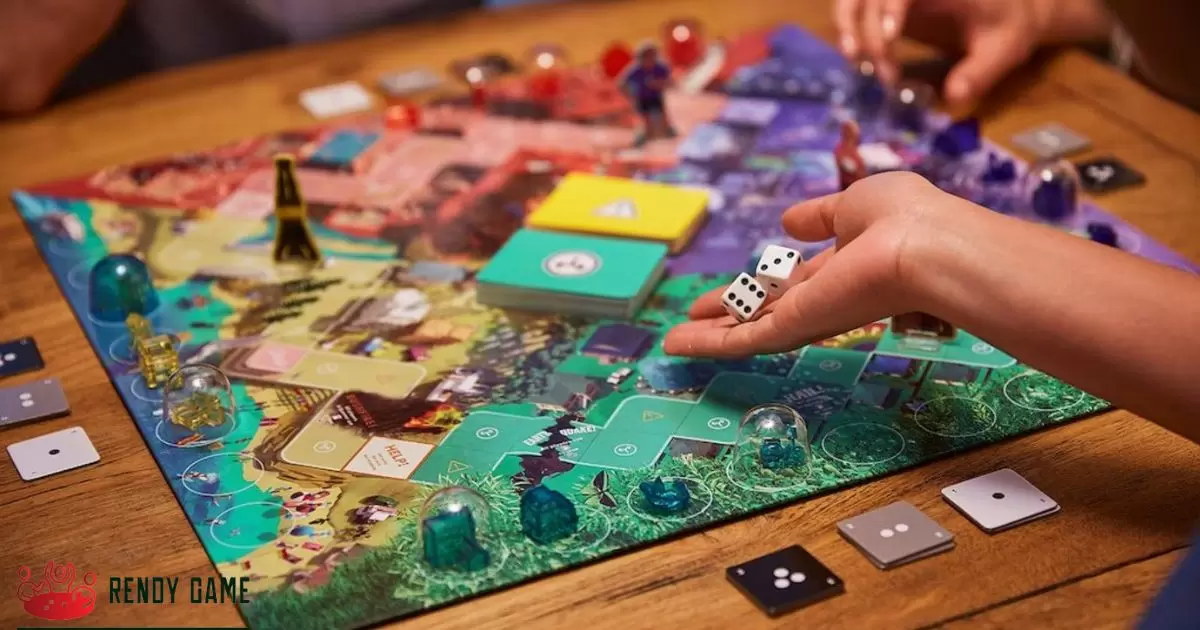A board game is a tabletop game typically played on a flat surface with a defined board and pieces. Players follow specific rules and objectives to compete or cooperate, using strategy, chance, or skill to win. Examples include chess, Monopoly, and Scrabble.
Looking for a fun-filled evening with friends? Gather your friends and family for a memorable night of laughter and lively debates with the “Would You Rather Board Game.” Unleash your inner storyteller and prepare for endless laughter as you navigate this captivating game of preferences.
This engaging game is designed to test your decision-making skills and creativity as you face intriguing dilemmas, from the absurdly comical to the thought-provoking. With each turn, you’ll be challenged to make tough choices, all while learning more about your fellow players’ quirks and preferences. With each question, you’ll learn more about your friends’ quirks, preferences, and imagination, creating unforgettable moments and lasting memories.
Is there anything better than a little game to break the ice?
Games are ideal icebreakers, instantly easing tension and promoting interaction. Games have a magical way of making people relax and open up. Whether it’s cards, charades, or trivia, games encourage camaraderie and laughter, making social gatherings more enjoyable.
Games offer structured fun and insight into personalities, going beyond small talk. They provide a shared experience that transcends awkward small talk, allowing participants to showcase their personalities, problem-solving skills, and sense of humor. Be it board games, video games, or outdoor activities, they facilitate meaningful connections and lasting friendships, making them perfect for breaking the ice.
Understanding the Game
Understanding the game is a critical step in the world of board games. It serves as the foundation upon which all gameplay hinges and determines the overall experience for players. This process involves grasping the rules, mechanics, and objectives, allowing participants to fully engage in the game.
Board games come in a wide variety of genres and themes, each with its own unique set of rules and dynamics. Payers need to read the rulebook carefully, often accompanied by setup instructions. These rules outline how the game is played, including how to move pieces, how to score points, and any special actions or abilities that may come into play.
Game Nights and Bonding

The “Would You Rather Board Game” is an excellent choice for game nights and gatherings with friends and family. This section will guide you on how to organize a successful game night, from inviting guests to creating the ideal gaming atmosphere. Learn how this game can be a fantastic tool for bonding with loved ones.
The Social and Educational Aspects
Beyond the laughter and entertainment. The “Would You Rather Board Game” is not just a source of amusement but also a valuable tool for personal growth. By engaging in challenging dilemmas and thought-provoking scenarios, players have the opportunity to enhance their conversational skills, stimulate their imaginative faculties, and cultivate sharper problem-solving abilities. This section reveals the broader impact of the game, demonstrating its potential to enrich your life in various ways.
Object of the Game
The “Object of the Game” is a pivotal aspect of any board game, setting the primary goal that players aim to achieve to emerge victorious. This core objective provides structure, purpose, and motivation for participants throughout the game. Some games may require players to accumulate wealth or resources, while others challenge them to solve mysteries or overcome obstacles.
The clarity and uniqueness of the “Object of the Game” are crucial for a board game’s appeal and success. It defines the purpose of playing, provides a sense of accomplishment when achieved, and keeps players engaged and motivated throughout the gaming experience. Whether it’s capturing the flag in a game of strategy, amassing the most properties in a real estate game, or surviving a treacherous journey in an adventure-themed board game.
Setup
The setup of a board game is a critical initial phase that lays the foundation for the entire gaming experience. It involves preparing the game components, arranging the game board, and allocating resources, characters, or pieces to their starting positions. The setup ensures that players begin on an equal footing and that the game’s rules are properly enforced.
A well-executed setup is essential for a smooth and enjoyable gaming experience. It not only ensures fairness and consistency but also immerses players in the game’s theme and setting. Additionally, the setup often sets the stage for strategic decisions, as players must consider their starting positions, resources, and initial advantages or limitations.
Rules and Gameplay
The Rules and Gameplay of board games are the foundational elements that dictate how the game is played and how players interact with each other and the game components. These rules create the structure and provide the framework for the overall gaming experience. Board game rules encompass a range of aspects, including setup, turn structure, player interactions, and win conditions.
The setup defines how the game begins, distributing game components and preparing the board or playing area. Turn structure outlines the order in which players take their actions, whether it’s taking turns clockwise, simultaneously, or following a specific sequence of phases.
Player interactions are essential as they define how players engage with one another. Some games involve cooperation, while others pit players against each other in competitive settings. Rules governing player interactions can encompass trading, negotiation, combat, or even strategic alliances.
Reviews and Opinions
Reviews and Opinions play a crucial role in shaping our understanding and expectations of various products and experiences, including board games. Player reviews provide firsthand accounts of individuals who have experienced the game. They often highlight the game’s strengths, weaknesses, and their personal enjoyment, helping others gauge whether it aligns with their preferences.
By reading reviews and opinions, potential players can gain valuable information about the game’s entertainment value, age-appropriateness, and suitability for different group sizes and settings. They also provide a sense of the community’s reception and the potential for longevity in one’s gaming collection.
Strategies for Success
Strategies for Success are the carefully thought-out plans and approaches that players employ in board games to achieve their objectives and increase their chances of winning. These strategies are essential in navigating the game’s challenges and outsmarting opponents.
The nature of strategies can vary widely depending on the game, but there are common principles that often apply. Firstly, players must understand the rules and mechanics of the game thoroughly. This knowledge forms the foundation for devising effective strategies.
Furthermore, strategic thinking involves assessing the current game state, considering various options, and predicting the potential consequences of each move. It may also involve adapting to changing circumstances, anticipating opponents’ actions, and making informed decisions based on the available information.
Variations and Expansions
Variations typically introduce modified rules or gameplay mechanics while maintaining the core essence of the game. For the “Would You Rather Board Game,” variations might involve alternate question sets, different scenarios, or special rules that introduce unique challenges.
These variations are an excellent way to refresh the game for seasoned players and tailor it to specific audiences. Expansions, on the other hand, offer substantial content additions, often in the form of new cards, scenarios, or components.
These expansions enhance replayability, providing fresh challenges and opportunities for players, whether they’re enjoying a classic board game or a modern multiplication board game. Expansions can introduce new themes, scenarios, or even specialized cards, ensuring that the game remains engaging and entertaining over time.
FAQs
Is there a board game would I lie to you?
Yes, there is a board game based on “Would I Lie to You?” It’s a fun party game inspired by the TV show.
Is it OK to play board games?
Yes, it’s absolutely okay to play board games. They’re a fun and social form of entertainment.
Are board games luck or skill?
Board games combine both luck and skill, with the balance varying from game to game. Strategy can influence outcomes, but chance also plays a role.
What is the most famous board game?
The most famous board game is chess, known and played worldwide for centuries.
Conclusion
In conclusion, the “Would You Rather Board Game” offers a unique and engaging experience for players of all ages. From its historical roots to the strategies for success and the many variations available, this game promises hours of laughter and memorable moments. Whether you’re navigating hilarious dilemmas, creating your own scenarios, or exploring various expansions, this game promises endless entertainment.

